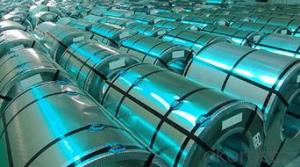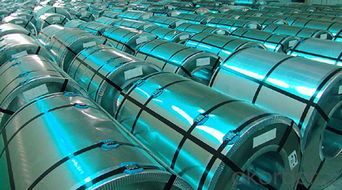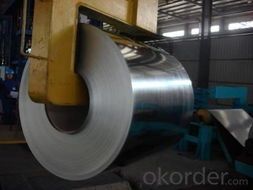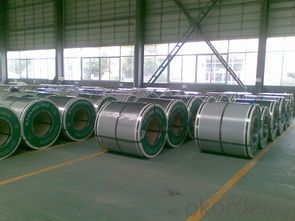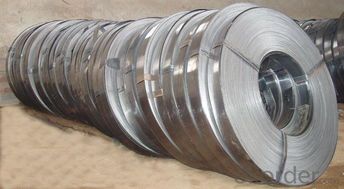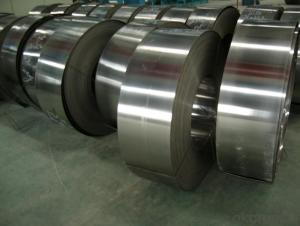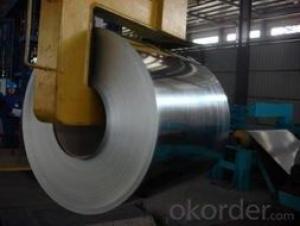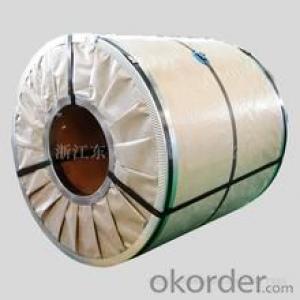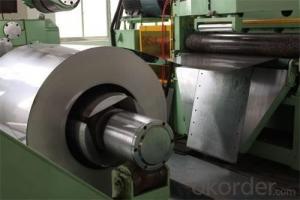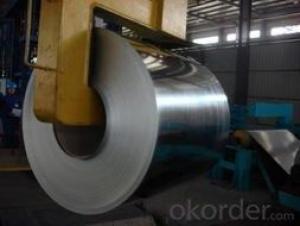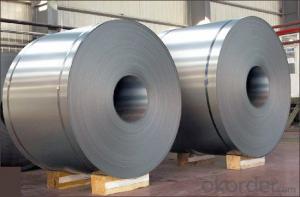Chines Best Cheap Cold Rolled Steel Coil JIS G 3302
- Loading Port:
- China main port
- Payment Terms:
- TT OR LC
- Min Order Qty:
- 50 m.t.
- Supply Capability:
- 10000 m.t./month
OKorder Service Pledge
OKorder Financial Service
You Might Also Like
Chines Best Cold Rolled Steel Coil JIS G 3302
1.Structure of Cold Rolled Steel Description:
The raw material of cold rolled steel coil/sheet is high quality hot rolled product, and after pickling continuous rolling, degreasing, annealing,skin pass,slitting and cut to length line etc. Along with it many kinds of new technology and new process of global cold rolling production have been applied. Therefore the quality of the goods could be guaranteed. The product is widely used in outdoor and interior decoration, furnishing manufacturing, home appliance, automobile etc.
2.Main Features of the Cold Rolled Steel:
• Excellent process capability
• Smooth and flat surface
• Workability, durability
• Excellent heat resistance performance
• High strength
• Good formability
• Good visual effect
3.Cold Rolled Steel Images
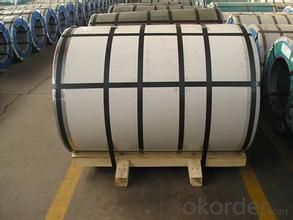
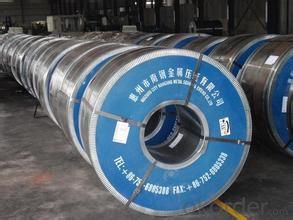
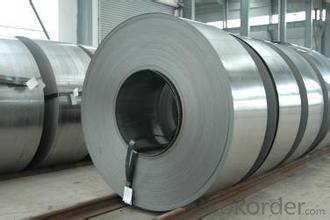
4.Cold Rolled Steel Specification
Standard:AISI,ASTM,DIN,GB,JIS,JIS G3302 ASTM 653M EN10142
Grade: Q195~Q345
Thickness: 0.16mm~2.0mm
Width: 1250mm MAX
Coil weight:3-12 MT
Coil ID:508/610mm
Chemical composition:
C | Si | Mn | Cr | Ni | P | S |
0.150 | 0.476 | 11.231 | 12.50 | 0.900 | 0.039 | 0.010
|
5.FAQ of Cold Rolled Steel
1.How to guarantee the quality of the products?
We have established the international advanced quality management system,every link from raw material to final product we have strict quality test;We resolutely put an end to unqualified products flowing into the market. At the same time, we will provide necessary follow-up service assurance.
2. How long can we receive the product after purchase?
Usually within thirty working days after receiving buyer’s advance payment or LC. We will arrange the factory manufacturing as soon as possible. The cargo readiness usually takes 15-25 days, but the shipment will depend on the vessel situation.
- Q: How are steel coils used in the production of electrical motors?
- Steel coils are used in the production of electrical motors as they serve as the core component of the motor's electromagnetic system. These coils are wound around a laminated steel core to create an electromagnet that generates the magnetic field required for the motor's operation. The steel coils, when energized with electric current, produce a magnetic field that interacts with the stator and rotor to facilitate the conversion of electrical energy into mechanical energy.
- Q: Looking for a new entry door for my home If someone would explain the features and benefits of both fiberglass and steel doors I would greatly appreciate it!!
- Steel doors can dent easily and are usually cheaper in price. Whereas fiberglass doors cost more but are more durable to withstand weather etc. Steel doors show the effects of wear and tear more than wood or fiberglass doors do.
- Q: So here's the deal:I recently bought McCann's Instant Steel-Cut Oatmeal, and I'm wondering about any possible nutritional differences between the instant and regular stove-top. In case you haven't seen it, instant steel-cut comes in individual packets and is cooked only by adding boiling water, the same as instant rolled oatmeal (i.e. Quaker).When I asked about instant vs. stove-top rolled oats, my doctor said there are no significant nutritional differences, but since the main health appeal of steel-cut is the coarse grain, it doesn't seem possible for the finer ground instant to be as nutritious.I can't find much info about this, so any help is appreciated!
- Most people who are used to rolled oats have a very hard time adjusting to steel cut oats that are cooked only 30 minutes. For many, it's not much different than eating them raw. (Raw, soaked oats is called cram. Having to eat uncooked oats, as only the poorest would do, gives us the expression 'to cram it down your throat'.) Better still is to cook them thoroughly at night then reheat portions for breakfast if you're in a hurry. They'll keep about five days at a time under refrigeration. Any small nutritional loss from longer cooking is more than compensated by the better digestibility of well-cooked oats. That is, the nutrition is wasted if the oats pass undigested through the body. For most of us, that would happen. Indeed, we are not cows. Neither are we horses. People need to cook their oats.
- Q: Will a stainless steel mesh screen scratch a titanium cup, or vice versa?I have a titanium french press and am thinking about replacing the included press with an all steel one. I am worried about little flakes of titanium or steel getting ground off into the coffee when the press slides in and out. The original press has a polyester cloth for a screen, so nothing scratches.
- Steel is usually harder than titanium, at least when both materials are hear-treated to give their best strengths. And a harder material can scratch a softer one. So I imagine that the answer is that it will scratch. However much of the rest of your question is unclear and it may be that the amount of friction between the two is so small that no wear will take place, so there could be no problem. The function of the polyester cloth may be vital in reducing this friction, so that unless you keep this part of the original design, the scratching will become worse no matter which combination of metals are used.
- Q: How do steel coils resist corrosion?
- Steel coils resist corrosion due to the protective layer formed on their surface. This layer, known as a patina, acts as a barrier between the steel and the surrounding environment, preventing moisture and oxygen from reaching the metal and causing oxidation. Additionally, steel coils can be coated with corrosion-resistant materials such as zinc or paint to further enhance their resistance to corrosion.
- Q: How are steel coils used in the production of shipping vessels?
- Steel coils are used in the production of shipping vessels as they are shaped and formed into various components such as hulls, decks, and bulkheads. They provide strength, durability, and flexibility to the structure, ensuring the vessel can withstand harsh marine conditions and carry heavy loads.
- Q: What are the different grades of steel used in coils?
- There are several different grades of steel used in coils, including low carbon steel, medium carbon steel, high carbon steel, and alloy steel. Each grade has specific properties and characteristics that make it suitable for various applications, such as automotive, construction, or manufacturing industries. The grade of steel chosen for coil production depends on factors such as strength requirements, formability, corrosion resistance, and cost considerations.
- Q: More specifically steel wire (around 1/8 diameter). I'm doing a science fair project where I'm testing if concrete encased in steel has more fire resistance than steel by itself. However, I have no idea what the dimensions of concrete encased steel is so I can't scale down. And if I did have the dimensions I wouldn't know how to encase it around the steel wire (do I just poor concrete over it (heck I've never even used concrete)? Thanks for any help.
- If you're designing this structure, I recommend not filling it with concrete. It will do very little for stiffness (steel is 7-8 times stiffer than concrete), almost nothing for strength (unless buckling of the steel cylinder is an issue), and will add lots of unnecessary weight.
- Q: What are the pros and cons of non-stick and stainless steel pots and pans ?Thanks
- Non Stick is good for frying, sauteeing, etc., but I find they don't tend to last as long as regular stainless steel pans because they can get scratched relatively easy if you use metal stirring utensils. Stainless steel is good for soups, stews, or if you plan to use a metal stirring utensil (whisk, fork, etc.). I use both non-stick and stainless steel pots and pans. I think the most useful pots/pans I have are my medium-sized, non-stick frying pan and my small, stainless steel dutch oven.
- Q: What is the lifespan of a steel coil?
- The lifespan of a steel coil can vary depending on various factors such as the quality of the steel, its usage and maintenance. However, on average, a well-maintained steel coil can last anywhere from 10 to 30 years.
Send your message to us
Chines Best Cheap Cold Rolled Steel Coil JIS G 3302
- Loading Port:
- China main port
- Payment Terms:
- TT OR LC
- Min Order Qty:
- 50 m.t.
- Supply Capability:
- 10000 m.t./month
OKorder Service Pledge
OKorder Financial Service
Similar products
Hot products
Hot Searches
Related keywords
